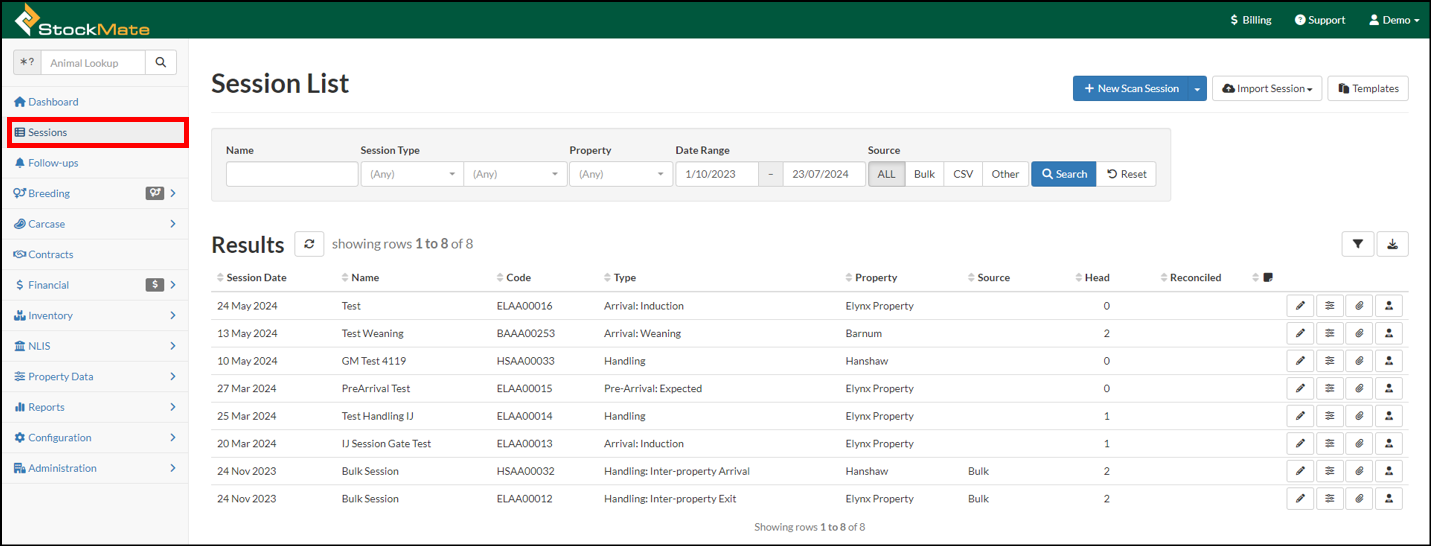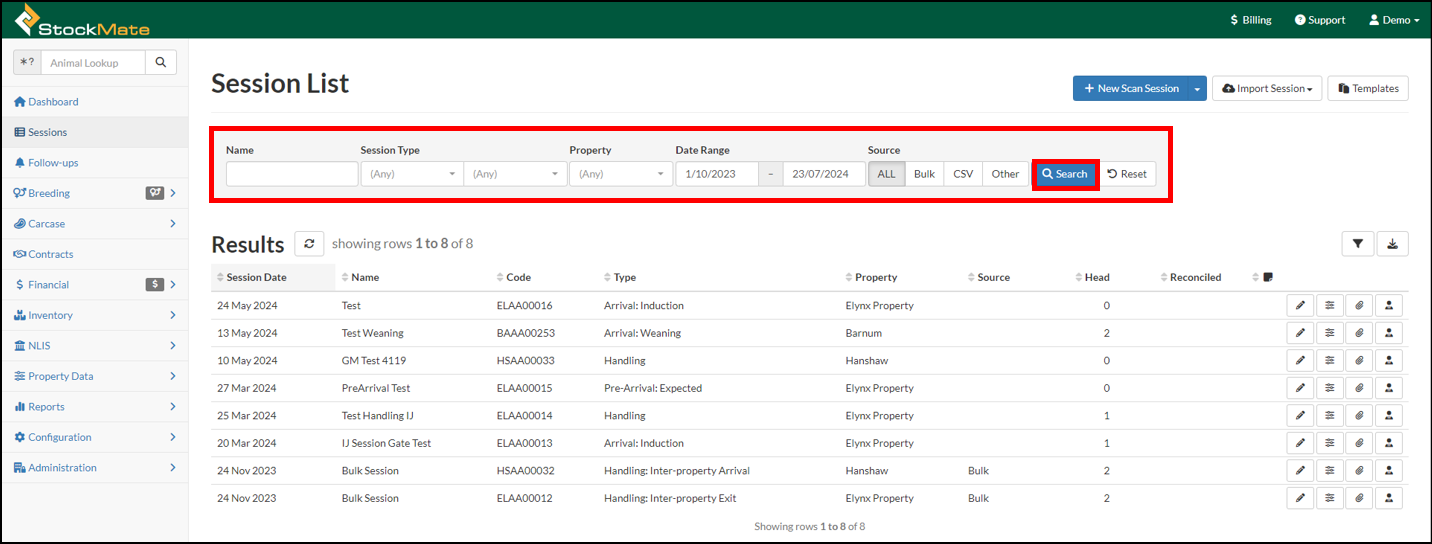Session List Screen Overview (web)
Overview of Session List
The Session List is a record of all Sessions created in StockMate. This article describes the different elements visible on the Session List Screen, namely:
- Search Criteria
- Results
- New Scan Session
- Import Session
- Session Templates
To view the Session List, select Sessions.

Search Criteria
The Search Criteria section of the screen allows you to search for a particular Session by Session Name, Session Type, and/or Property within a user defined Date Range.
The Search can be limited to the Source for the Session i.e. Bulk, CSV Import or Other. Alternatively select All to search the entire listing of Sessions.
The Search can be limited to the Source for the Session i.e. Bulk, CSV Import or Other. Alternatively select All to search the entire listing of Sessions.
Input the Search Criteria, select Search.

Results
Based on the Search Criteria entered, the relevant Sessions that meet the criteria will be displayed in the Results section of the screen.
- To filter the displayed results, select
. This allows you to filter by Name, Code, Type, Sub Type or Property.
- To download the Results displayed on screen to a CSV file, select
.
- If the Search Criteria at the top of the screen has been changed, the Results will need to be reloaded. Select
to reload Results.
For each Session listed under Results, use the icons for further information as follows:
- Select
for Session Details.
- Select
for Session Defaults. Further information about Session Defaults are found in Session Templates (web)
- Select
for Session Documents attached to the Session (if any). Where Session Documents have been attached, a badge will be visible, displaying the number of documents.
- Select
to view Services linked to the Session (if any), such as veterinarian, owner, purchaser, laboratory.
New Scan Session
New Scan Sessions can be created from the Session List screen.


Import Session

Select +New Scan Session to create a New Scan Session.
Refer to Create New Session – Scan Session (web) for detailed instructions on using this functionality.
To create a Bulk Session select the dropdown arrow  .
.
Select New Bulk Handling Session or New Bulk Exit Session.
Refer to Create New Session – Bulk Session (web) for detailed instructions on using this functionality.
Import Session
Select a session type from the Import Session drop-down list to create a Session by importing a pre-populated CSV file.
Refer to Create New Session – Import CSV (web) for details on downloading a CSV Template for an Arrival/Handling/Exit session and then importing the completed CSV file into StockMate.
Session Templates
Session Templates enable a user to setup the fields that will be visible in a Scan Session on the web and the app.
Select Templates.
Refer to Session Templates (web) for further information and detailed instructions on setting up a Session Template on the web.
Refer to Session Templates (web) for further information and detailed instructions on setting up a Session Template on the web.
Related Articles
Session Screen Overview (web)
The Session Screen displays all the animals that were scanned, imported or bulk uploaded into StockMate in a selected Session. Other Session related information can been viewed, added or edited from this screen. Accessing the Session Screen Select ...Edit Existing Session - via Scan Screen (web)
Existing Sessions can be edited or added to via the Scan Screen. This functionality is used to update an individual animal record. If multiple animal records need to be edited or updated, this can be done: via a Bulk Edit, refer to Edit Existing ...Session Templates (web)
Session Templates can be setup on the web. These will then be available for use on the Tablet in a Scan Session. When setting up a Session Template, there are seven sections on the Session Template Setup screen: Animal Details, Treatments, DNA ...Sessions Overview (web)
Sessions are heavily used throughout StockMate, for recording animal attributes, drafting, movements, examination results and applying treatments. They can be created via scanning animals, bulk selection or importing data using the relevant ...Reports Overview
The Reports section of StockMate enables the user to configure and generate reports. Most reports have ‘Report Configuration’, ‘Search Criteria’ and 'Pivot mode' options that can be edited and updated in a similar fashion. Report Configuration allows ...